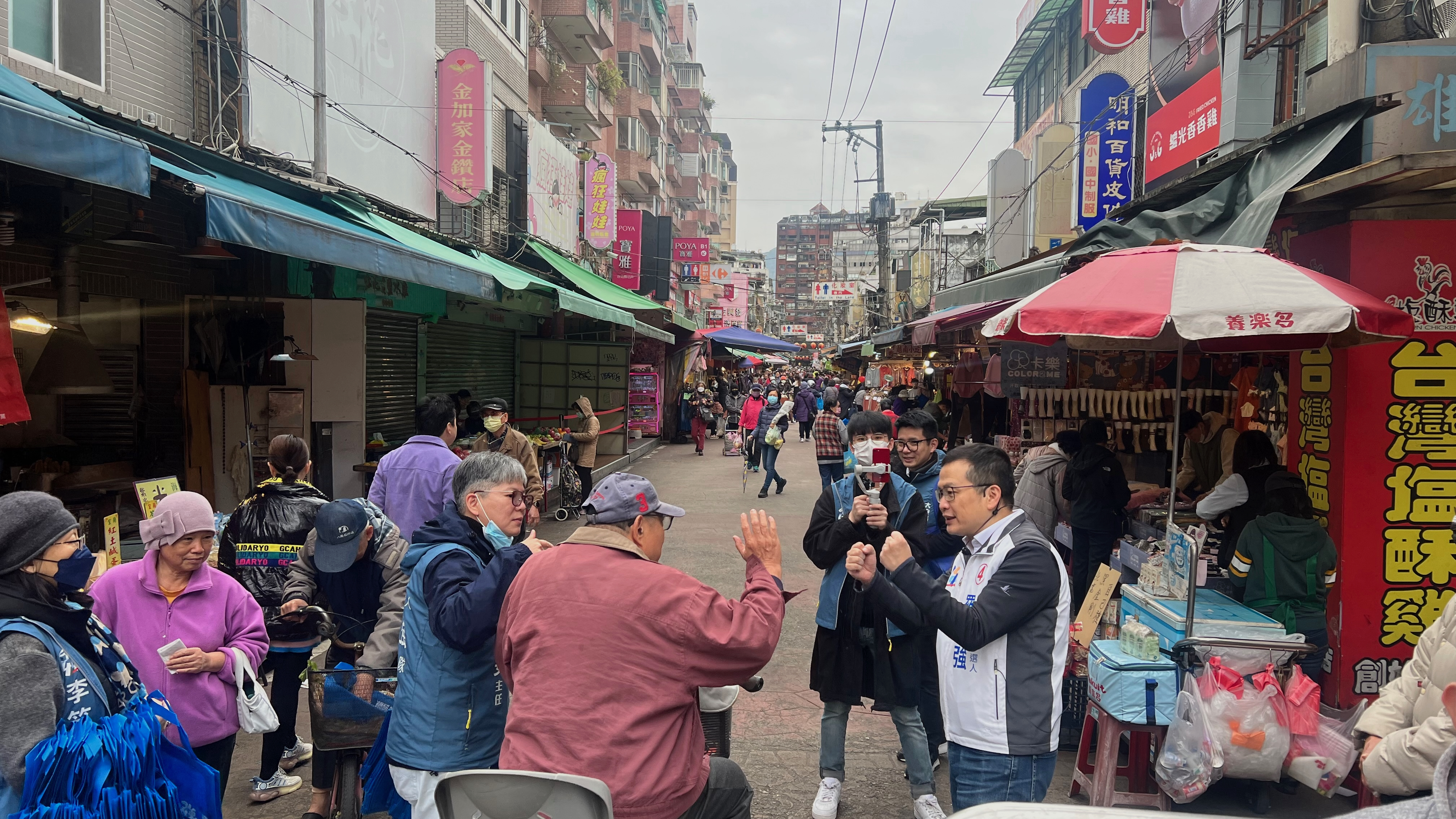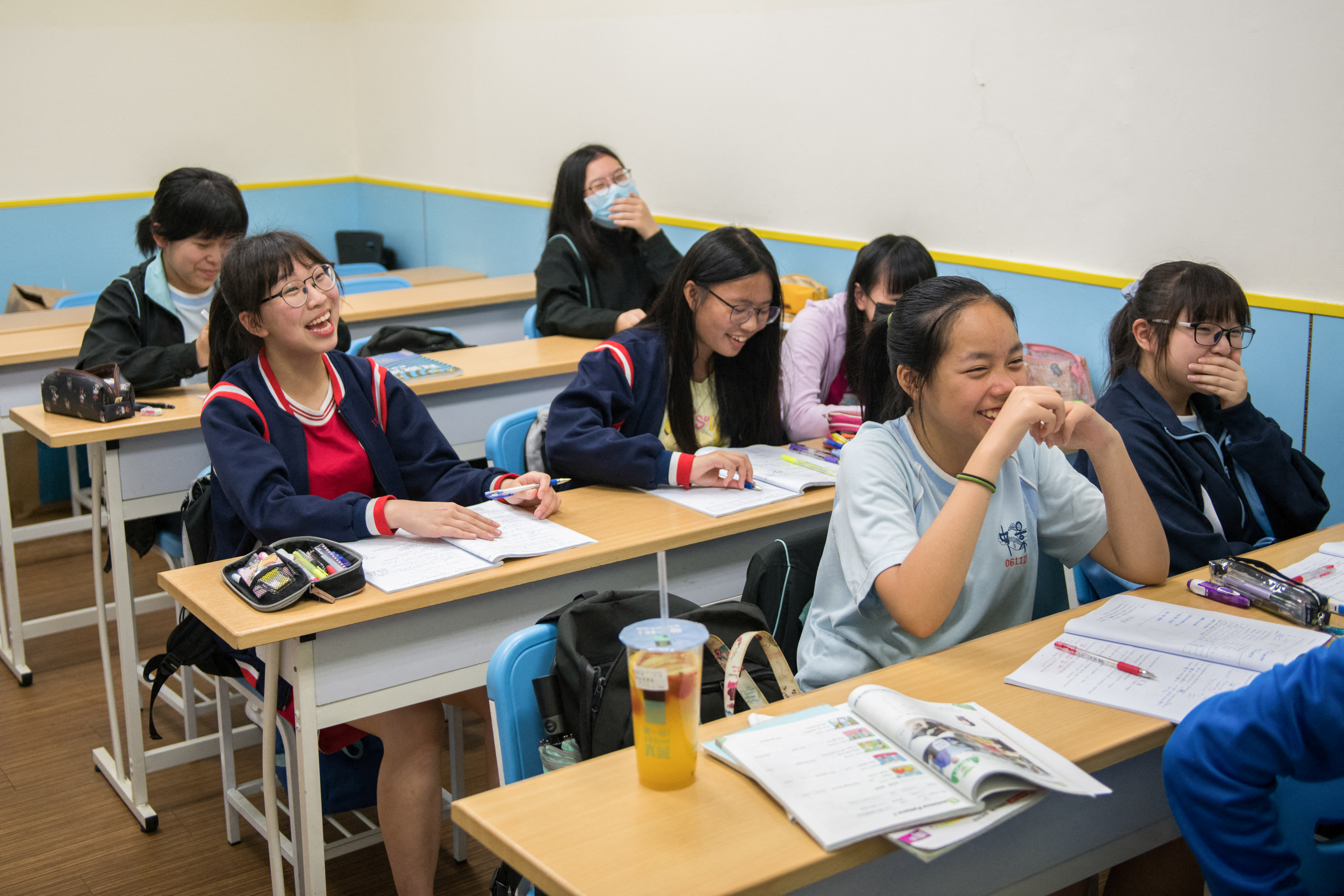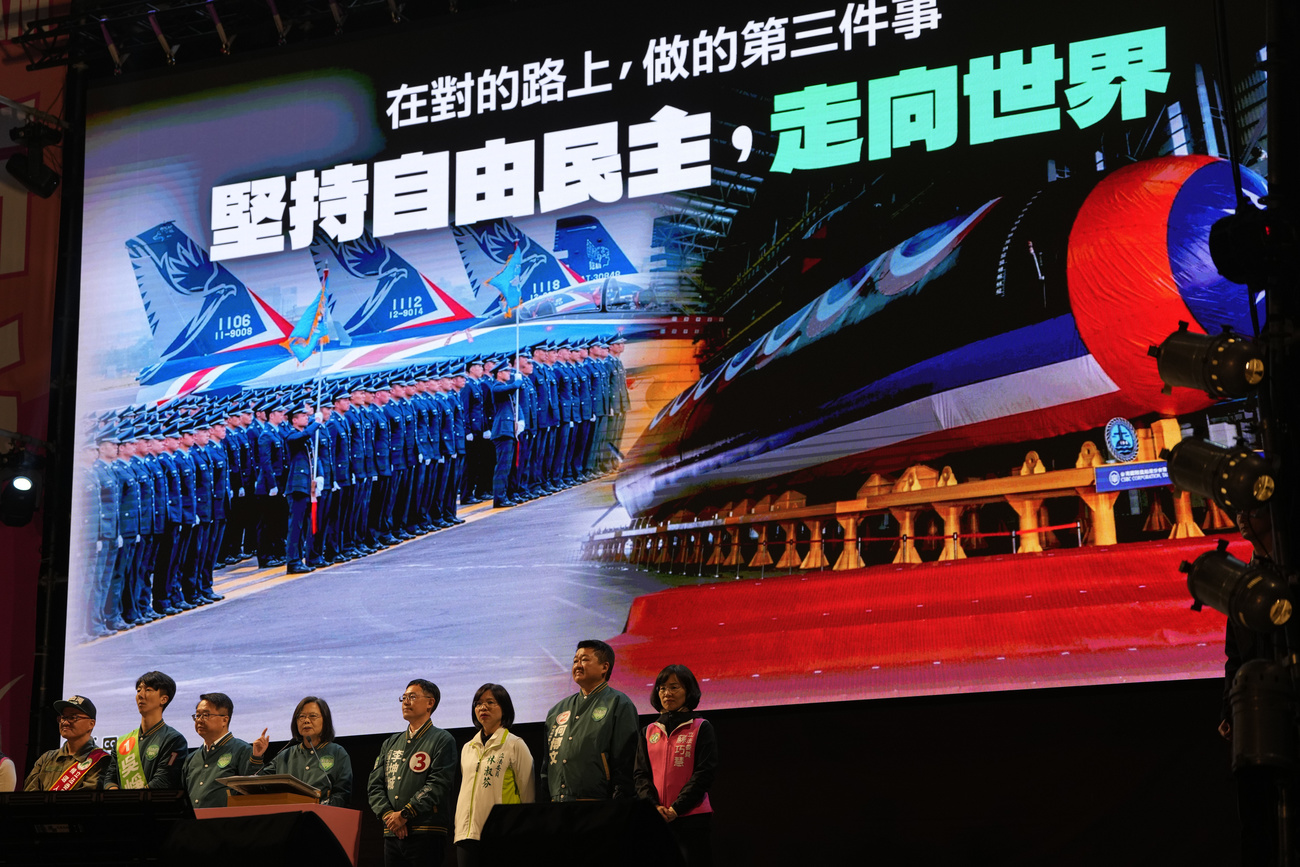
Transparent political finances: a balancing act in Taiwan and Switzerland

Who finances which politicians and parties? With strict regulations and monitoring instruments, Taiwan has succeeded in strengthening trust in politics. But the new disclosure practice also has a dark side.
Chih-chiang Lo and Peifen Hsieh use every minute to make contact with potential voters. The 54-year-old candidate for the Chinese nationalist Kuomintang party and the 37-year-old parliamentary candidate for the Democratic Progressive Party have for years been running for local and national offices in the Da’an district in the heart of the capital, Taipei.
Anyone who meets them in a busy alley before going to the polls is given small gifts: face masks, handkerchiefs, badges, biscuits and bottles of water are now part of the “weaponry” of every politician on the island state in the Western Pacific.
What has disappeared, however, are the ominous and popular red envelopes that are still used to distribute sums of money in large parts of East Asia. While this tradition, known as Hóngbāo in Chinese, is still practised in Taiwan on special occasions such as weddings, graduations or the birth of a child, the envelopes have disappeared from election campaigns.
“Such vote-buying overshadowed the first phase of our democracy, starting with the first free elections in 1996,” James Kan, vice-president of the independent organisation Citizen Congress Watch (CCW), told SWI swissinfo.ch. “From the mid-noughties, after the first changes of power at the national level, the attitude of the main parties changed on the issue of transparency in political financing,” says Kan, whose organisation has acted as a kind of watchdog of Taiwanese democracy since it was founded in 2007.
“We collect information on all the important politicians and point out financial discrepancies and broken election promises to the public,” he says.
Upper limit for donations in Taiwan
Together with other civil society organisations and independent media, Kan’s Citizen Congress Watch has helped Taiwan to gradually tighten its disclosure laws for political funding over the past 20 years. “Our legislation on political funding leaves hardly any loopholes for illegal donations now,” says Chen Mei-Yen, the controller at the responsible authority.
The current Taiwanese disclosure law not only regulates the amounts of money above which political donations must be disclosed, but also the upper limits for donations. The reporting obligation starts at 10,000 Taiwan dollars, the equivalent of just under CHF300. In Switzerland, this amount is 50 times higher, at CHF15,000.

A single donor in Taiwan may donate a maximum of 100,000 Taiwan dollars (just under CHF3,000) to a candidate. Switzerland has no such upper limit.
“Upper limits have their advantages and disadvantages,” says Balz Oertli, a Swiss transparency expert and journalist. “One positive effect could be to level the playing field for everyone. Especially when it comes to referendums, small interest groups in Switzerland sometimes have to compete with established parties and associations with large budgets.”

More
Explainer: Why Taiwan’s vote commands global attention
Money alone does not win a vote in Switzerland
On the other hand, money alone does not win a vote, Oertli says. “In the case of the pensions initiativeExternal link in March, for example, the yes side disclosed a budget seven times larger than the no side. The initiative was nonetheless rejected.”
In addition, an upper limit would be very difficult to implement in practice and countless workarounds would have to be ruled out. Oertli is a board member of the organisation Lobbywatch and works as a journalist for the research collective WAV, which operates the online tool Das Geld + die PolitikExternal link, where the relevant data is compiled.

“Transparency is essential,” Oertli says, “because without transparency, we simply have to trust that everyone is playing by the common rules.”
Does Taiwan enjoy high trust thanks to transparency?
However, greater transparency may also help to strengthen trust in democracy and politics. “The number of people who support our democratic institutions has risen in recent years,” Kan says.
According to studies by the World Values Survey, over 90% (+10% since 2008) of Taiwanese are now committed to democracy; 84% (+5% since 2008) are in favour of the country’s multi-party system, according to data from the Pew Research Center. This data was collected using scientific opinion research methods.
Still, Kan also sees the dark side of the disclosure practice. “What we and the authorities publish is not only noticed by our democratically minded citizens here in Taiwan, but also by our neighbours in China.”

Chinese pressure on a Taiwanese presidential candidate
According to Kan, this is particularly felt by donors and candidates who do business in and with China. “One prominent example is the entrepreneur Terry Gou, who withdrew his candidacy for the presidency a few weeks before the election under pressure from the Chinese tax authorities,” he says.
This was after the Taiwanese financial monitoring authorities published data on the Foxconn founder’s financial involvement in Taiwanese politics.
Foxconn companies in China then received the announcement of an “extraordinary – i.e. politically motivated – tax audit,” as the Secretary General of the National Security Council in Taiwan, Wellington Koo, told the media at the end of 2023.

More
Learning democracy through games in Taiwanese schools
The disclosure practice in the island state therefore remains a balancing act, even for organisations such as Citizen Congress Watch. “In view of China’s hostile interests, we cannot simply share our data and results with the general public,” Kan says. “But we have good communication channels with the authorities and the local parties.”
Campaign gifts for a maximum of 100 Taiwan dollars
This mutual trust is having an effect: until recently, civil society organisations such as Citizen Congress Watch had no access to the data collected by the financial control authorities. “That has changed,” says Chen Mei-Yen. “Now accredited organisations such as the CCW can view the data before we publish it six months after an election.”

And in everyday political life, respect for the regulations is also evident on a small scale: during election campaigns, parties and candidates are only allowed to give potential voters gifts worth a maximum of 100 Taiwan dollars – less than CHF3 – such as handkerchiefs or rain ponchos.

At the campaign headquarters of the local Democratic Progressive Party candidate, Peifen Hsieh, a donation box also explicitly states the maximum limit for individual donations of 1,000 Taiwan dollars. It also states that no more than two face masks with an image of the candidate may be taken, regardless of the amount of the donation.

More
Taiwan’s fight against digital disinformation
Edited by Mark Livingston. Adapted from German by Catherine Hickley/ts

In compliance with the JTI standards
More: SWI swissinfo.ch certified by the Journalism Trust Initiative





























You can find an overview of ongoing debates with our journalists here . Please join us!
If you want to start a conversation about a topic raised in this article or want to report factual errors, email us at english@swissinfo.ch.